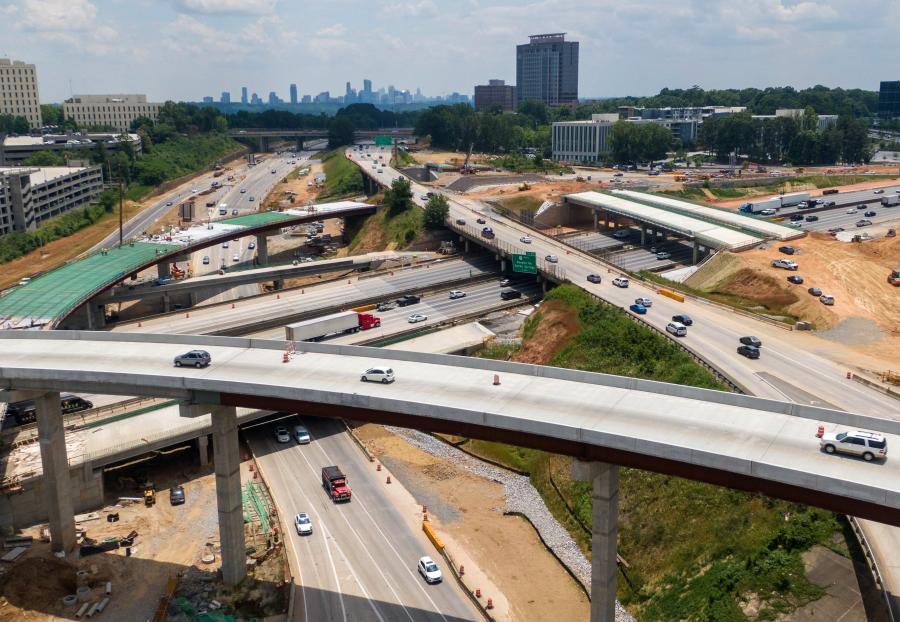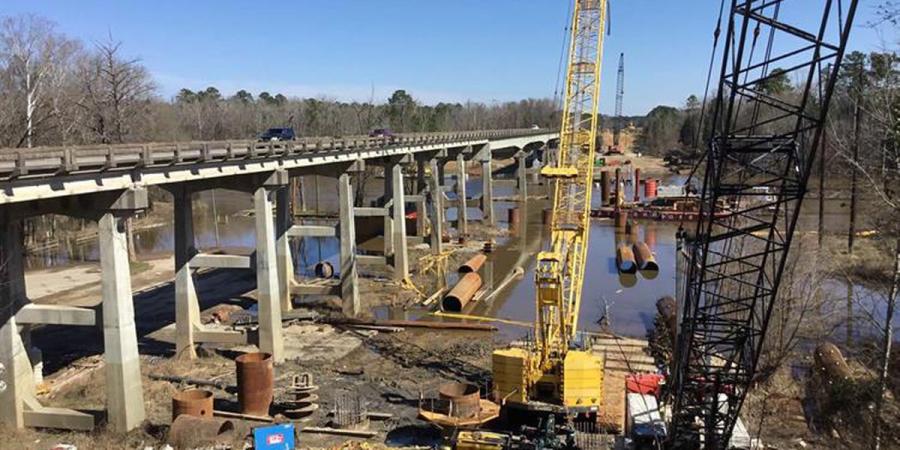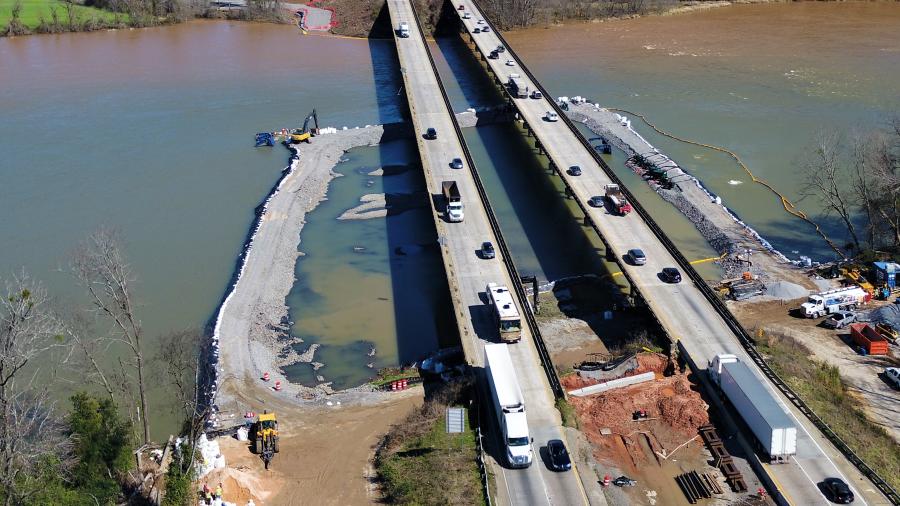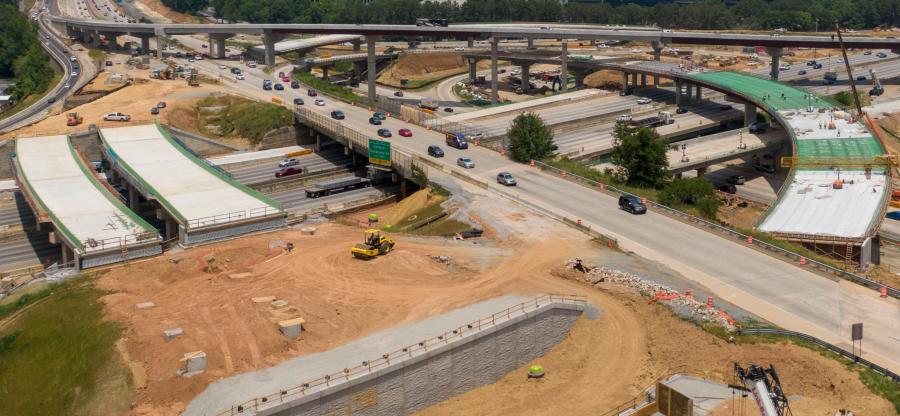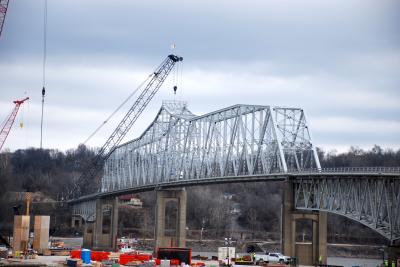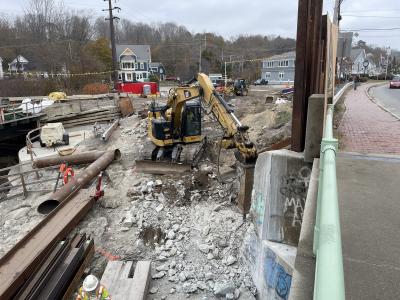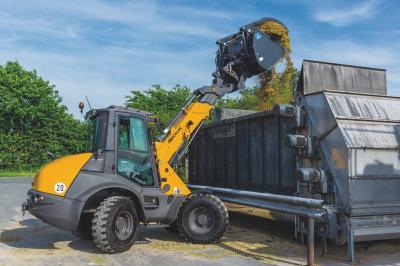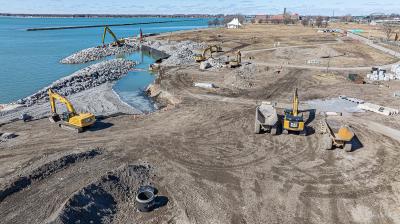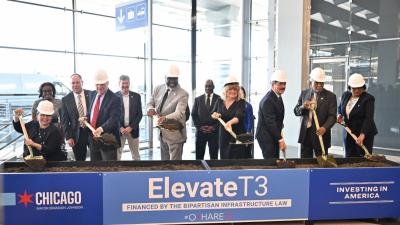The GHCA is a trade association composed of member companies involved in the construction and maintenance of highways, streets, bridges and transportation systems throughout the state, which also serves as the lobbying organization for this industry and as the voice for industry with GDOT and other state agencies.
(Photo courtesy of GDOT.)
The state of Georgia is growing at an immense rate via new residents and companies and with such an influx, the state's highway infrastructure is experiencing a massive investment.
Last year alone, more than $1.8 billion was spent on constructing new roads and bridges and upgrading and rehabilitating existing infrastructure, much of which is administered by the Georgia Department of Transportation (GDOT).
But allocating money to build new highways is insufficient. For the work to be completed, a large number of contractors, subcontractors, technical and engineering consultants and material suppliers are required to ensure that projects can be delivered from the concept stage to actual construction crews on the ground. Hence the importance of the Georgia Highway Contractors Association (GHCA), a trade association composed of member companies involved in the construction and maintenance of highways, streets, bridges and transportation systems throughout the state, which also serves as the lobbying organization for this industry and as the voice for industry with GDOT and other state agencies.
To get a better handle on the role and actions of the GHCA, Construction Equipment Guide spoke with David J. Moellering, president/CEO of GHCA, who also serves as the president/CEO of the Georgia Asphalt Pavement Association and the Georgia Concrete Contractors Association. These three associations work together to maximize shared common interests and share the same office in Alpharetta.
According to Moellering, he is confident that GDOT will maintain approximately the same level of spending in 2023.
"We'll be in the same ballpark, depending on what is let by GDOT," he said. "The general amount of money should be very close. We were the first state to open up after COVID and we've been working ever since. When Governor Brian Kemp opened up the state, that was monumental."
Georgia contractors are delivering small, medium and large projects, whether they are straight-forward or more complex.
"Our DOT does a very good job of offering all sorts of projects for contractors to bid on," said Moellering. "Our members have been very successful in delivering them on-time, even through COVID. In some cases, there are changes in cost and completion dates and with all things considered, we have a very good track record."
Being innovative and efficient is necessary for Georgia contractors and subcontractors to meet deadlines.
"Our contractors are very interested in the latest techniques, but a lot of the techniques haven't changed much over the years," said Moellering. "The advent of GPS and some of the electronic grading systems have moved things forward, but generally most of the techniques are tried and true. We have employed best practices over the years, and the DOT has embraced that as well. We have a very strong partnership with GDOT and are in constant communication. We see each other as partners —one can't be successful without the other."
And they have been successful. The GHCA, created in 1937, has several hundred members and membership is growing.
"Most of the main players in the state have been and continue to be members and we have a few that have been with us since 1937," said Moellering. "We have a very strong membership."
Ensuring that GHCA members have sufficient people to replace retiring workers and to meet the increase in overall projects is an issue that the association has taken on, with excellent results.
They've started two initiatives. The first is via the georgiaroadjobs.com web site.
"It is connecting people with our industry, with a focus on social media," said Moellering. "We're directing potential applicants to our membership so that they have an opportunity to hire the candidates."
The second initiative is via high schools and technical schools, where it's helped schools get students using heavy equipment simulators to learn how to operate equipment.
"There are six high schools that have been outfitted with simulators and they have students working on them today," said Moellering. "In the first class, we'll turn out more than 100 young people that will be eligible for us to hire and work on job sites."
Six technical schools are at various stages in terms of being outfitted with simulators, and many more are being fabricated for installation.
"We are securing teachers and other elements to make the program a success," said Moellering. "That's all moving forward and I feel very good about our position in workforce development. Our governor and state legislature have embraced it through funding and support. They made it possible for us to really advance this. We're in a good situation and we're trying to double that program in 2023 and double it again in the following year.
"The construction workforce development program is something we have focused the most on lately," he added. "It's been a partnership with us, the Department of Education, our technical schools, our governor and our contractors. We have drawn other associations in and they have benefitted from it. We're looking for people that want to be part of our industry. We don't care who it is or what their background is. We're not giving them a job, we're giving them a long-term career. We're talking about high school graduates, technical school graduates, college graduates, ex-military, folks that came out of the penal system and those transitioning from other jobs. We have a place for everyone."
Jobs in the construction sector pay well and offer opportunities for individuals to rise from crafts and operator positions to management at a variety of levels.
GHCA members are experiencing some of the same supply chain issues for key materials that are being seen in other sectors.
"The biggest issues are steel and ductile iron; they're very hard to get right now," said Moellering. "We've also seen a cement shortage, but that seems to be coming to an end. Some of the shortages are caused by transportation to the southern and southeastern parts of the state such as Savannah and Valdosta."
The Buy America policy, in regards to materials, which has not been implemented yet, could create some potential problems.
"This is going to be a challenge," said Moellering. "The [Biden] administration is making it very hard on us when you look at ductile iron, steel, PVC, wire, etc... Working through GDOT we submitted a list of affected items. Hopefully we'll see some type of waiver allowing us to use the materials that are available. If not, we'll definitely experience delays."
With the state wanting to increase the size and scope of the highway and bridge program, and having to maintain the existing system, having a good working relationship with GDOT and other agencies is crucial to ensure everyone is on the same page.
Moellering is very proud of the proud of the accomplishments of the GHCA, especially the contributions of its members.
"We're very fortunate to have some of the best companies in this state," he said, "and we have an outstanding group of people that we work with."
Today's top stories



